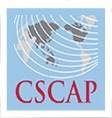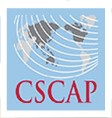Description
Co-Chairs: CSCAP Malaysia, Aus CSCAP and CSCAP Philippines.
Considerations:
The Study Group proposes to focus its work on the security implications of climate change, with specific reference to the Asia-Pacific region. Using the key policy-relevant findings of Working Group II of the Intergovernmental Panel on Climate Change (IPCC), which examined the impacts of climate change on natural and human systems, the Study Group will seek to arrive at recommendations that are tailored for governments in the region.
In a report published in February 2007, the IPCC concluded that the warming of the climate system was "unequivocal" and expressed "very high confidence" that it was primarily man-made. The IPCC has also found that global warming is occurring at a faster rate. The world is today 0.74°C warmer than it was in the late 1800s, and much of that warming has occurred in the last 50 years. If emissions of greenhouse gases continue to grow at their current pace, the average global temperature is projected to rise by another 1.8°C to 4°C by 2100. The warming of the earth's temperature is expected to irreversibly alter the face of the planet, giving rise to serious challenges to the security and stability of nations across the globe. Some regions, most notably sub-Saharan Africa, will experience more severe problems than others. In the Asia-Pacific region, the most pernicious effects of climate change are expected to include, inter alia, extreme weather events, uncertainties over maritime boundaries, displacement of people, food insecurity and water stress and scarcity.
Specific agenda: The specific agenda of this Study Group will be to:
Determine which of the climate-change scenarios are likely to have serious security implications; and
Discuss specific measures that can be taken to deal with those scenarios that pose serious repercussions for security in the region.
Outcomes:
The outcome of the Study Group will be a Memorandum that will briefly highlight the scenarios that have been envisaged for the Asia-Pacific region, assess their security implications, and recommend adaptive responses that can be taken by governments in the region and the ASEAN Regional Forum (ARF).
Meetings:
This Study Group has held the following meetings.
1st Meeting: 15-16 February 2009, Manila, The Philippines.
A second meeting of this Study Group will be held on 30-31 May 2009 in Kuala Lumpur, Malaysia.

